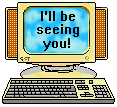

It's hard to believe, but once upon a time people were not convinced that the internet would take off. In the late 80s and early 90s, Carl Malamud went around the world chatting to the people and organisations that were literally building the infrastructure, policies, standards and services to create what we know today as the internet. People like Tim Berners-Lee built the world wide web on top of those efforts.
I really enjoyed the bits were people were exploring what this internet thing is capable of. Old mate Simon Hackett makes an appearance, and AARNet is used as an example of creating a network with no fuss or bullshit like some of the European rollouts that were having arguments over vendors and standards.
There's a sorta follow-up to Exploring The Internet - A World's Fair for the Global Village, published in 1997 and covers the Internet 1996 World Exposition. It is on my list of books to buy (no libraries in VIC seem to have a copy I can borrow).

Tim wrote this in the late 90s as a memoir of his time working at CERN getting the WWW going, then trying to formalise the WWW outside of CERN. It was published at a time when the WWW was popular, but it was far from taken for granted that it was going to be such a dominating force in, well, every aspect of modern life.
My main takeaway from his story is that while he won the battle back then and the WWW was widely adopted due to his efforts, we lost the war. It's clear 25 years later that the ghouls of corporate America got their way. Tim has a new memoir out - This Is For Everyone - that is on my list to read whenever I can get to the library next.

Reading this adorable little book/magazine was a solid reminder that despite the enshittification of the internet and computing, there is still hope. The authors said they were inspired by internet phonebooks from back in the day - I remember borrowing those from the library! Search engines weren't really a thing so people would publish books of interesting websites to visit. That's what this book is, along with a few essays about how we can carve our own niches in this piece of gigantic global digital infrastructure - while we still can.

One of the rare fiction books I read! I didn't like it and gave up about half way. Yes Nazis bad, yes Japanese imperialists bad. Racism bad. Cool story bro. Considering what's going on in the USA right now, the concepts of what a Nazi is and what racism is just felt so basic. Awesome cover on this edition though. I liked that.

MONA is the best art gallery I've ever visited. I even wrote a detailed article about their innovative (for the time) iPod touch based navigation system. I never heard of David Walsh until I visited MONA and thought who the fuck is responsible for this place and the more I read about him, the more I was interested in what makes him tick, so my wife got me this book as a gift many years ago.
Gambling is fascinating to me as I like easy money and I like sports and I like thinking I can game a system. Of course, that's a fool's errand but for Mr. Walsh, it's not. Bloke made millions using computers to have an edge over the bookies and has some great stories to tell of those days. Those are the bits of the book I found interesting. His philosophies of life and whatnot, eh, who cares what a rich gambler thinks about the morality or insight of anything except gambling? I think he would agree with me.
